Edit, Download, and Sign the Property Tax Exemption Form for Seniors in Colorado
Form
eSign
Add Annotation
Share Form
How do I fill this out?
To fill out this form, ensure you have all personal and property information ready. Review the eligibility criteria carefully before starting. Follow the sections step by step for accurate submission.
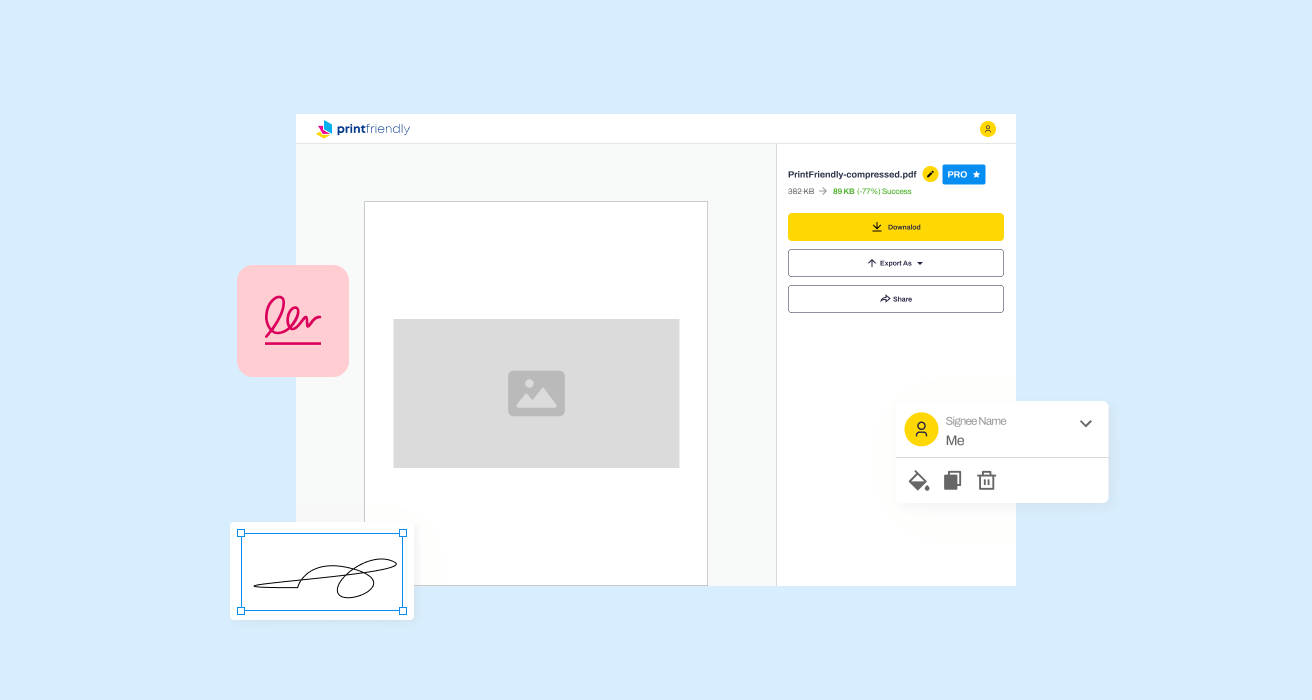
How to fill out the Property Tax Exemption Form for Seniors in Colorado?
1
Gather personal details including names and Social Security numbers.
2
Verify age and ownership requirements based on your circumstances.
3
Complete each section fully, addressing special conditions if applicable.
4
Review the form for completeness and accuracy before signing.
5
Submit the form to the County Assessor's Office by the deadline.
Who needs the Property Tax Exemption Form for Seniors in Colorado?
1
Seniors aged 65 and above who own residential property to benefit from tax exemption.
2
Surviving spouses of seniors who need to apply for tax exemption after the spouse's death.
3
Individuals planning to move to a nursing home but want to retain property tax benefits.
4
Homeowners affected by natural disasters seeking relief through property tax exemption.
5
Individuals who have transferred property ownership into a trust for estate planning.
How PrintFriendly Works
At PrintFriendly.com, you can edit, sign, share, and download the Property Tax Exemption Form for Seniors in Colorado along with hundreds of thousands of other documents. Our platform helps you seamlessly edit PDFs and other documents online. You can edit our large library of pre-existing files and upload your own documents. Managing PDFs has never been easier.

Edit your Property Tax Exemption Form for Seniors in Colorado online.
With PrintFriendly, editing this PDF is a breeze. Simply upload the document and click on the fields to modify your information. Save your changes and download the updated form easily.

Add your legally-binding signature.
Signing the PDF on PrintFriendly is straightforward. Once you've filled out the form, just click the sign option and type your name or use a saved signature. Ensure your signature is clear and legible before downloading.
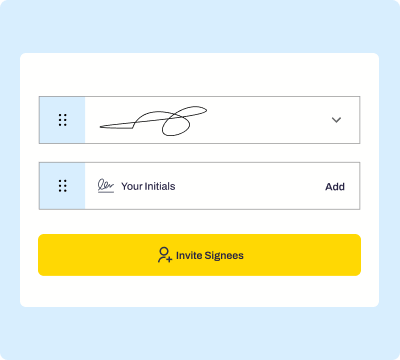
Share your form instantly.
Sharing your PDF is effortless on PrintFriendly. After editing, you can generate a shareable link or download the file to share via email. This feature makes collaboration with family members or advisors simple.
How do I edit the Property Tax Exemption Form for Seniors in Colorado online?
With PrintFriendly, editing this PDF is a breeze. Simply upload the document and click on the fields to modify your information. Save your changes and download the updated form easily.
1
Upload the PDF document to PrintFriendly.
2
Click on each field to edit your information.
3
Review all changes for accuracy and completeness.
4
Download the edited PDF after saving your changes.
5
Share the document using the provided options.

What are the instructions for submitting this form?
To submit this form, mail or deliver it to the Jefferson County Assessor's Office located at 100 Jefferson County Parkway, Golden, CO 80419-2500. You may also fax your application to 303-271-8674 for faster processing. Ensure that you send your application before the July 15 deadline to avoid any loss of exemption, and keep a copy for your records.
What are the important dates for this form in 2024 and 2025?
For 2024, the application deadline is July 15, with late submissions accepted until August 15. For 2025, the dates are anticipated to be similar, but confirm with your County Assessor. Be aware that exemption remains effective year after year as long as ownership and occupancy do not change.

What is the purpose of this form?
The purpose of this form is to facilitate property tax exemption applications for eligible seniors and their surviving spouses. It serves to provide essential tax relief on primary residences, encouraging long-term home ownership among seniors. By establishing clear criteria and an easy-to-follow process, this form aims to assist eligible individuals in obtaining financial benefits.

Tell me about this form and its components and fields line-by-line.

- 1. Applicant Identification: Includes personal details like name and social security number.
- 2. Age and Occupancy Verification: Confirms that the applicant meets age and residency requirements.
- 3. Ownership Verification: Establishes that the applicant has owned the property for the required time.
- 4. Additional Occupants: Lists individuals living in the property as primary residents.
- 5. Nursing Home Information: Details any confinement of the applicant or spouse to a care facility.
- 6. Eminent Domain Information: Captures details if the prior residence has been condemned.
- 7. Natural Disaster Impact: Documents if the prior home was affected by a natural disaster.
- 8. Trust or Corporate Ownership Details: Includes information about any trusts or entities involved in property ownership.
What happens if I fail to submit this form?
Failing to submit this form may result in the loss of potential tax exemptions. Applicants risk incurring higher property taxes without the relief provided by the exemption. It's crucial to adhere to deadlines to maintain eligibility.
- Loss of Tax Benefits: Failure to submit on time may lead to missing out on valuable exemptions.
- Increased Financial Burden: Without an exemption, property taxes may substantially increase, impacting household budgets.
- Limited Appeal Rights: Late applications may not provide the option to appeal decisions.
How do I know when to use this form?

- 1. For Seniors Aged 65 and Above: To apply for exemptions based on age and residency.
- 2. For Surviving Spouses: If seeking to continue benefits previously received by a deceased spouse.
- 3. In Case of Health Care Facility Confinement: To address eligibility related to temporary confinement in a care facility.
- 4. When Facing Property Condemnation: In situations where previous residences have been impacted by eminent domain.
- 5. After a Natural Disaster: If former homes have been destroyed or rendered uninhabitable.
Frequently Asked Questions
What is the purpose of this form?
This form allows qualifying seniors to apply for property tax exemptions.
How do I fill out the form?
Ensure you have all necessary personal and property details before starting.
What happens if I miss the submission deadline?
Late submissions may not have appeal rights but can still be accepted until August 15.
Can I apply for this exemption on multiple properties?
No, each applicant can only apply for an exemption on one primary residence.
What if I am a surviving spouse?
You are eligible to apply using the same form if your spouse previously qualified.
Is there a fee to apply for this exemption?
No, there is no fee associated with filing this application.
Can I check the status of my application?
Yes, you can contact the County Assessor's office for application status.
What kind of proof do I need to provide?
You may need to provide identification and proof of property ownership.
Is assistance available for filling out the form?
Yes, the County Assessor's office can provide guidance on the application process.
When will I know if I'm approved for the exemption?
Notification is typically sent after the review process is complete.
Related Documents - Senior Property Tax Exemption Form
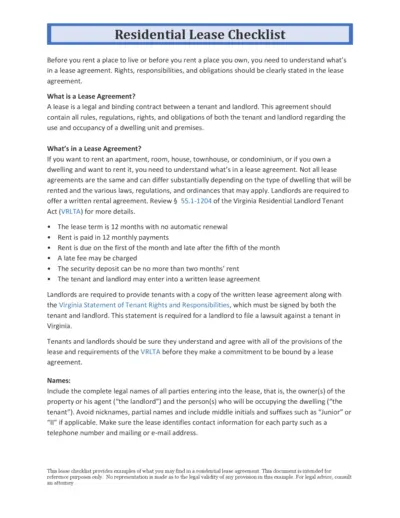
Residential Lease Agreement Checklist for Tenants and Landlords
This document provides a detailed checklist of what both tenants and landlords need to know and include in a residential lease agreement. It covers key elements such as lease terms, rent payment schedules, and maintenance responsibilities. Use this guide to ensure all rights and obligations are clearly outlined in your lease agreement.
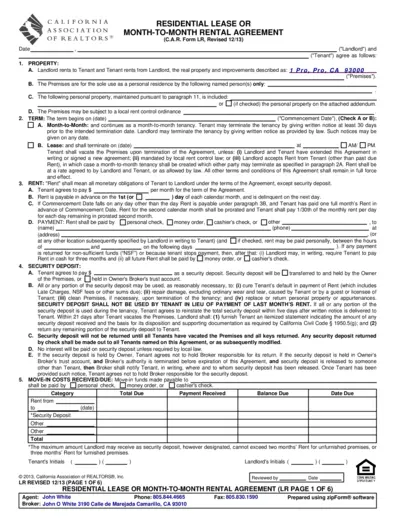
Residential Lease or Month-to-Month Rental Agreement
This file contains a comprehensive residential lease or month-to-month rental agreement used in California. It provides details on terms, obligations, and conditions for both landlords and tenants. Perfect for those seeking a standardized rental agreement form.
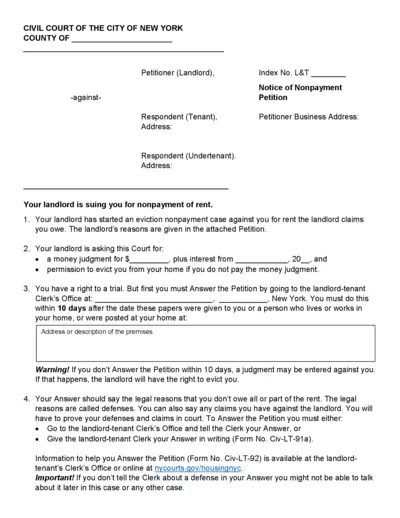
Civil Court of the City of New York Nonpayment Petition
This document is a Notice of Nonpayment Petition issued by the Civil Court of the City of New York. It details the actions that a landlord can take against a tenant for nonpayment of rent. It includes instructions on how the tenant can respond and their rights.
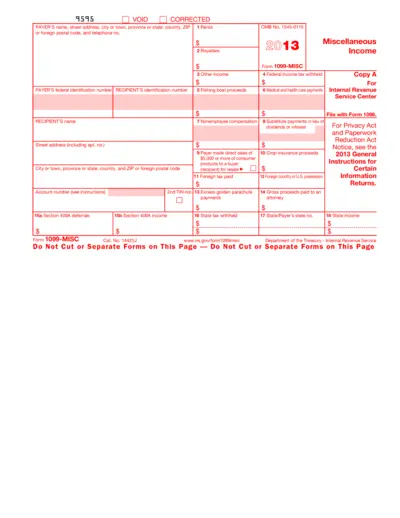
Form 1099-MISC: Miscellaneous Income for 2013
This file is a 2013 version of the IRS Form 1099-MISC used to report miscellaneous income. It includes fields for reporting various types of payments made to individuals or entities. The form is typically filed by payers to report income paid to recipients.
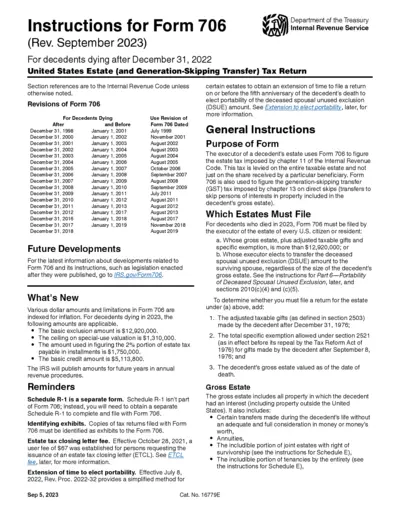
Instructions for Form 706 (Rev. September 2023)
This document provides detailed instructions for completing Form 706, the United States Estate (and Generation-Skipping Transfer) Tax Return for decedents dying after December 31, 2022. It includes information on revisions, general instructions, and specific filing requirements. The instructions also cover important updates and reminders related to the form.
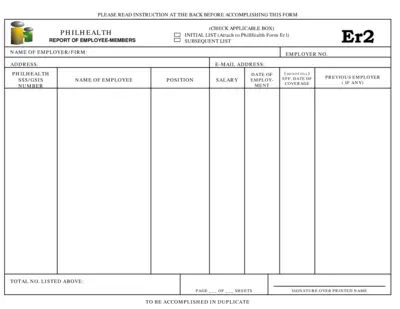
PhilHealth Report of Employee-Members Form Instructions
This file provides instructions for employers on how to fill out and submit the PhilHealth Report of Employee-Members form. It is essential for employers to report new hires to PhilHealth to ensure proper coverage. Detailed instructions and requirements are included.
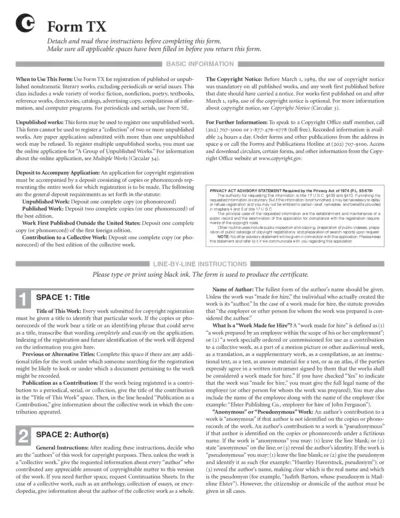
Copyright Registration Form TX Instructions
This form is used for the registration of nondramatic literary works, such as fiction, nonfiction, poetry, textbooks, and computer programs. It provides detailed information on how to complete the form, including what information is required for each section and how to submit the application. Use it to ensure your work is properly registered for copyright protection.
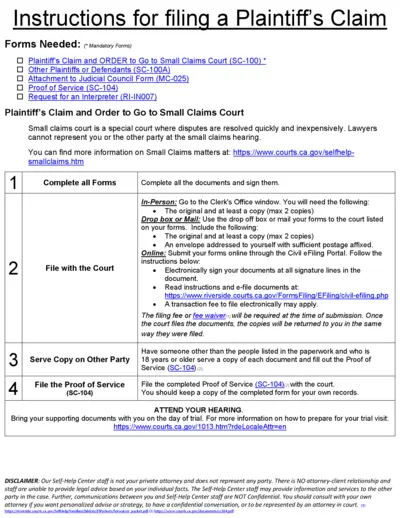
Plaintiff's Claim and Instructions for Small Claims Court
This file provides instructions and necessary forms for filing a Plaintiff's Claim in Small Claims Court. It includes details on filling out, submitting, and serving the forms. Ensure to follow the steps carefully to protect your rights.
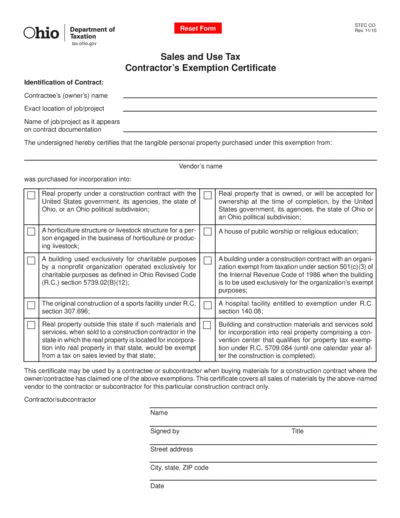
Ohio Sales and Use Tax Contractor's Exemption Certificate
This document is the Ohio Sales and Use Tax Contractor's Exemption Certificate. Contractors use this form to claim exemptions on certain taxable goods for specified exempt uses. It's crucial for contractors working with tax-exempt entities or on tax-exempt projects.
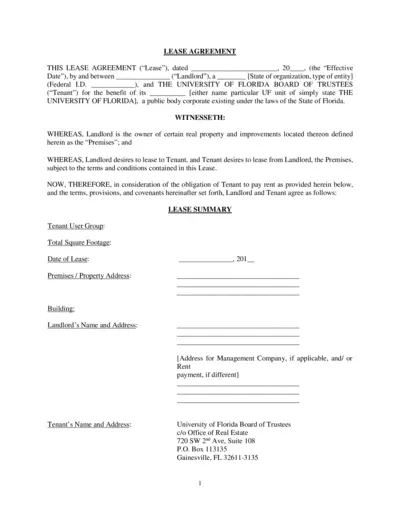
Lease Agreement for University of Florida Premises
This lease agreement file outlines the terms and conditions for renting a property owned by the Landlord to the University of Florida Board of Trustees. It covers key aspects such as lease term, rent details, improvements, and permitted use. Ideal for landlords and tenants involved in leasing agreements.
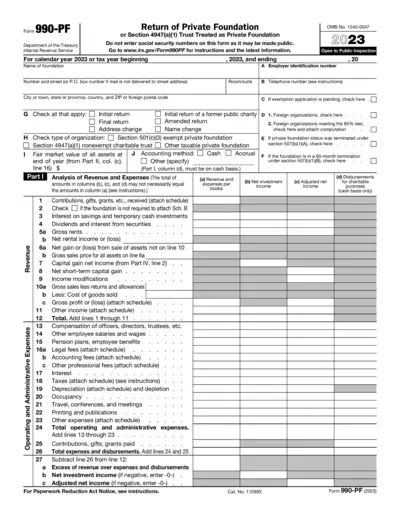
Return of Private Foundation Form 990-PF 2023
Form 990-PF is a return for private foundations required by the IRS. It includes information on revenue, expenses, and other financial details. Avoid entering social security numbers on this form.
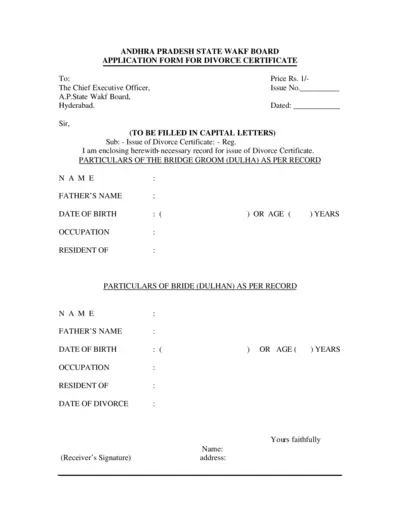
Application Form for Divorce Certificate - Andhra Pradesh State Wakf Board
This form is used to apply for a Divorce Certificate from the Andhra Pradesh State Wakf Board in Hyderabad. The form requires details of both bride and groom as per recorded information. It also includes fields for verification and office use only.